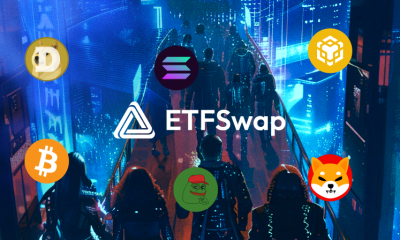Ripple and XRP News
Ripple and XRP Make Financial History as U.S. Banks Say Yes to XRP

Ripple’s XRP is reportedly on the verge of a major breakthrough in the United States, as banks are expected to adopt it for international payments. This development represents a significant milestone for Ripple, especially given the ongoing regulatory challenges in the U.S., including a lawsuit filed by the SEC against Ripple in 2020.
XRP’s Role in Facilitating International Payments
Ripple’s native cryptocurrency, XRP, is designed to enhance cross-border payments through its advanced blockchain network.
Crypto enthusiast Ben Armstrong, in a YouTube video, declared that the United States adopting XRP for international payments would be “the biggest catalyst for the growth of the price potential for XRP.” XRP aims to revolutionize global financial transactions by leveraging cryptocurrency technology to improve speed, cost, and efficiency. Armstrong described XRP as “the transfer medium between digital assets going cross-border.”
The regulatory environment in the United States has been challenging for cryptocurrencies like XRP. The SEC’s labeling of various cryptocurrencies as securities has sparked controversy in the crypto space.
Ripple’s ongoing legal battle with the SEC, which accused the company of conducting unregistered securities offerings through the sale of XRP, exemplifies these challenges.
XRP Regulatory Clarity
Ripple experienced a significant legal victory in 2023. A judge ruled that “programmatic sales of XRP were not considered securities,” providing Ripple with a degree of regulatory clarity. This ruling allowed XRP to be reintegrated into multiple crypto exchanges and positioned it to benefit from Ripple’s potential entry into new markets.
Brad Garlinghouse, Ripple’s CEO, criticized the SEC’s approach to cryptocurrency regulation. He stated that SEC Chairman Gary Gensler was “overstepping what the laws say” and acting on his own agenda rather than prioritizing the public’s interests. Garlinghouse expressed frustration with the U.S. regulatory environment, highlighting the slow acceptance of the crypto industry and the overemphasis on judicial processes over providing clear regulations.













